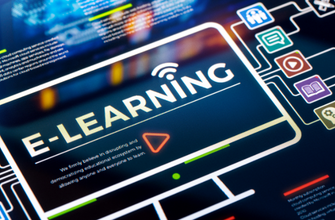The ITIL® 4 Specialist: Sustainability in Digital and IT Training focuses on integrating sustainable practices within digital and IT services, aligning with the growing emphasis on environmental responsibility in technology. It explores strategies for minimising the environmental impact of IT operations while optimising efficiency. In today's tech-driven landscape, sustainability in digital and IT services is paramount for responsible and ethical business practices.
This ITIL® 4 Specialist: Sustainability in Digital and IT Course is ideal for anyone interested in learning how service organisations can address sustainability challenges related to their digital and IT strategies, tactics, and operations, with a focus on ITIL®'s Service Value Chain and ITIL® practices. This training course is beneficial for these professionals:
- IT Managers
- Business Analysts
- Service Design Managers
- Supply Chain Managers
- Sustainability Officers and Managers
- Digital Transformation Leaders
- Cloud Service Managers and Strategists
There are no formal prerequisites for attending this ITIL® 4 Specialist: Sustainability in Digital and IT (ITIL® SDIT) Training Course.
Professionals in IT management, digital services, environmental sustainability, and those involved in corporate responsibility should aim to master this subject. Understanding sustainable practices in digital and IT services is vital for organisations striving to minimise their carbon footprint, comply with environmental regulations, and enhance corporate social responsibility initiatives.

This 2-day training delves into sustainable practices, circular economy principles, and green IT strategies applicable to digital and IT services. Delegates engage in discussions and case studies, learning to implement sustainable frameworks, reduce waste, and optimise digital and IT operations resources.
Course Objectives:
- To understand sustainable practices in digital and IT services
- To implement circular economy principles in IT operations
- To minimise environmental impact and reduce waste
- To optimise resource usage in IT and digital services
- To develop strategies for sustainable IT service management
- To enhance corporate social responsibility through IT sustainability
Upon course completion, delegates will acquire insights and methodologies to integrate sustainability into digital and IT services, enabling them to implement environmentally responsible practices within their organisations.
Interested in other areas as well? We offer e-learning for all ITIL® 4 training qualifications marked with a green frame:

Unit 1: Understand the Key Concepts of Sustainability
Module 1: Describe the Benefits of Sustainability for an Organisation
- Benefits of Sustainability
Module 2: Describe the Key Concepts of Sustainability
- What is Sustainability?
- Sustainability Models, Issues, and Concepts
Module 3: Explain the Purpose of the UN Sustainable Development Goals and their role in an Organisation’s Sustainability
- 17 UN Sustainable Development Goals
- Role of the UN SDGs for Sustainability Vision
Module 4: Explain the Purpose of the UN Global Compact Principles and their role in Organisations’ Sustainability
- Ten Principles of the UN Global Compact
Module 5: Describe the Triple Bottom Line Model and the Scope of Each of the Three Pillars
- Triple Bottom Line
Module 6: Describe the Concept of Externalities
- Impact of Sustainability Initiatives
Module 7: Describe the Key Challenges of Sustainability
- Growing Human Population
- Waste Management
- Greenhouse Gas Emission
- Digital Poverty
- Digital Carbon Footprint
Module 8: Describe the Key Sustainability Solutions
- Corporate Social Responsibility
- Responsible Sourcing
- Sustainable Consumption and Production
- Circular Economy
Unit 2: Understand the Value, Benefits, Costs, and Risks of Sustainability
Module 9: Describe the Purpose of a Materiality Assessment
- Materiality Assessment
- Why Conduct a Materiality Assessment?
- How to Conduct a Materiality Assessment?
- Materiality Assessment by DEFRA
- Materiality Assessment Outputs
Module 10: Describe the Key Sources of Organisational Sustainability Risks
- Sustainability Risk Assessment
Module 11: Describe the Key Organisation-Level Stakeholder Groups and their Expectations
- Stakeholders
Module 12: Describe the Key Types and Sources of Sustainability Standards and Regulations
- Regulations and Standards
Module 13: Explain the Role of Services and the Service Economy in Sustainability
- Other Kinds of Sustainable Business Model
- Approaches Supporting Sustainable Business Models
Module 14: Explain the Recommendations for Sustainability Return on Investment (ROI)/Value on Investment
- Return on Investment in Sustainability
Unit 3: How Digital and Information Technology Support Sustainability
Module 15: Explain the Role of Digital Technology in Sustainability
- Role of Technology in Sustainability
- Digital Transformation for Sustainability
- Sustainable IT
Module 16: Describe How Digital Technology Impacts Sustainability
- Digital Sustainability
Unit 4: Know How to Plan Sustainability for an Organisation
Module 17: Explain the Role of Sustainability in an Organisation’s Vision
- Business, Digital, and Sustainability Vision
Module 18: Describe the Key Due Diligence Considerations for Sustainability
- Diligence Analysis
Module 19: Explain the Key Concerns of Achieving Sustainability in a Volatile, Uncertain, and Complex Environment
- Principles-Based Approach Vs Procedures-Based Approach vs Model-Based Approach
- Using Cynefin and Sense-Making to Address Complexity
Module 20: Describe the Three Dimensions (Aspects) of Strategic Planning
- Sustainability Business Model
- Evolution of Sustainability Planning
- Sustainable Products and Services
- Designing Sustainable Products and Services
- Organisational Ecosystem
Module 21: Describe the Key Elements of an Organisational Sustainability Strategy
- Strategies for Sustainability
Module 22: Describe the Key Elements of Sustainability Culture
- Values and Culture
Module 23: Know How to Address Sustainability in an Organisation’s Vision
- Defining the Vision
- Triple Bottom Line for Vision
Unit 5: How Organisational Sustainability is Assessed, Maintained, and Improved
Module 24: Describe the Key Concepts of Measurement and Reporting
- Metrics and KPIs
- Common Sustainability Metrics
Module 25: Explain How the Following Support Sustainability
- Innovations
- Communication and Collaboration
- Governance and Audit
Module 26: Explain How the Following ITIL Practices Support Sustainability
- Organisational Change Management
- Strategy Management
- Software Development and Management
- Supplier Management
The ITIL® 4 Specialist: Sustainability in Digital and IT (ITIL® SDIT) Exam assesses participants' understanding of the ITIL® 4 concepts and practices related to sustainability in the context of digital and IT services.
- Question Type: Multiple Choice
- Total Questions: 35
- Total Marks: 35 Marks
- Pass Mark: 65% or 23/35 Marks
- Duration: 60 Minutes
- Open Book/ Closed Book: Closed Book
Starting 2023, all PeopleCert Global Best Practice certifications will need to be renewed after 3 years.
Kérdésed van az e-learninggel kapcsolatban?
ALAPOZÓ TRÉNINGEK EHHEZ A KÉPZÉSHEZ
Még nincs elegendő tudásod a kurzus elvégzéséhez? Akkor ezekkel a képzésekkel szerezheted meg a szükséges alapokat.
ITIL® 4 Foundation e-learning vizsgával

Ezek a tanfolyamok és e-learningek is érdekelhetnek
Tekintsd meg néhány további képzésünket a témában
ITIL® 4 Specialist: Create, Deliver and Support Course e-learning vizsgával

ITIL® 4 Specialist: Drive Stakeholder Value e-learning vizsgával

ITIL® 4 Specialist: High Velocity IT (HVIT) e-learning vizsgával

ITIL® 4 Strategist: Direct, Plan and Improve (DPI) e-learning vizsgával

COBIT® Foundation vizsgafelkészítő e-learning vizsga voucherrel

SIAM™ Foundation vizsgafelkészítő e-learning

ITIL® 4 Practitioner: Service Request Management e-learning vizsga voucherrel

ITIL® 4 Specialist: IT Asset Management e-learning vizsga voucherrel

ITIL® 4 Practitioner - Monitoring and Event Management e-learning vizsga voucherrel

ITIL® 4 Practitioner - Deployment Management e-learning vizsga voucherrel

ITIL® 4 Leader: Digital and IT Strategy e-learning vizsga voucherrel

ITIL® 4 Specialist: Plan, Implement And Control e-learning vizsga voucherrel

ITIL® 4 Specialist: Business Relationship Management e-learning vizsga voucherrel

ITIL® 4 Specialist: Acquiring And Managing Cloud Services e-learning vizsga voucherrel

SIAM™ Professional vizsgafelkészítő e-learning vizsga voucherrel

Certified IT Service Manager CITSM e-learning

Root Cause Analysis e-learning












Az oktató kellően figyelt arra, hogy a személyesen jelen lévő és az online hallgatók együtt tudjanak haladni.
Jeszenszky Sándor